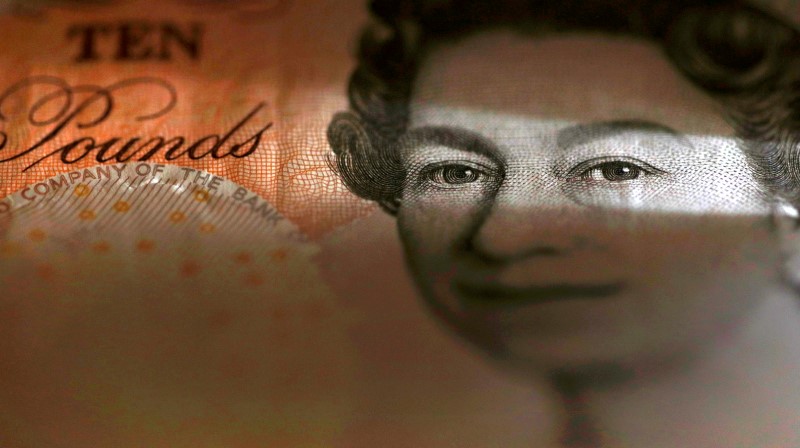By Ritvik Carvalho and Jemima Kelly
LONDON (Reuters) - Sterling skidded against the dollar and the euro on Friday, after British Prime Minister Theresa May failed to give any concrete details for how Britain might retain preferential access to Europe's single market.
In a closely watched speech in Italy, May said Britain should stay in the trade bloc during a roughly two-year transition out of the European Union, and offered concessions on a divorce deal as she appealed for a revival of Brexit negotiations.
May said Britain would honour its budget commitments made during the period of its EU's membership, and that Britain could seek a "better" deal than that a Canada-style free-trade agreement or membership of the European Economic Area would offer.
But analysts said the speech was scant on details about how Britain might secure proper access to the EU's lucrative single market, a sticking point in the negotiations, causing traders to sell the British currency.
The pound slipped to as low as $1.3488
It also fell against the euro, last down around 0.7 percent against the single currency at 88.55 pence. (EURGBP=D3)
"Theresa May outlined her vision for an optimistic and upbeat relationship with the EU, but today’s speech in Florence has done little to satisfy the markets," said OFX currency analyst Hamish Muress.
"Traders looked for hints around future access to the single market, and were disappointed not to find them in the prime minister’s speech."
Minutes before May's speech, sterling had fallen around 30 ticks on a report in the Telegraph newspaper that May would raise the possibility of Britain leaving the EU before March 2019. May said in answer to a question that Britain would leave at the end of March 2019.
Britain's FTSE 100 (FTSE) jumped 0.7 percent to the week's high as the weaker pound boosted its mainly foreign-earning constituents.
British government bond futures
PAYMENT FIGURE NOT MENTIONED
The pound has risen over 5 percent against the dollar this month, most of its gains coming largely on the back of a hawkish shift in the Bank of England's stance on record low UK interest rates. At its latest policy meeting, the BoE said interest rates could rise in "coming months", prompting many banks to forecast a hike as soon as November.
Sterling had risen against the dollar on Thursday after the BBC reported May would say Britain is willing to pay 20 billion euros (£17.70 billion) to the EU during a post-Brexit transition period, conditional on access to the bloc's single market.
But May made no mention of any concrete payment figure in her speech.
"Now I think it really depends on how (the EU's) Michel Barnier reacts (to May's speech), but I really don't think there's anything in that speech to frighten sterling long positions quite yet," said CMC Markets analyst Michael Hewson.

Investors were also watching out for a sovereign debt rating of Britain from credit ratings agency Moody's due later in the day.